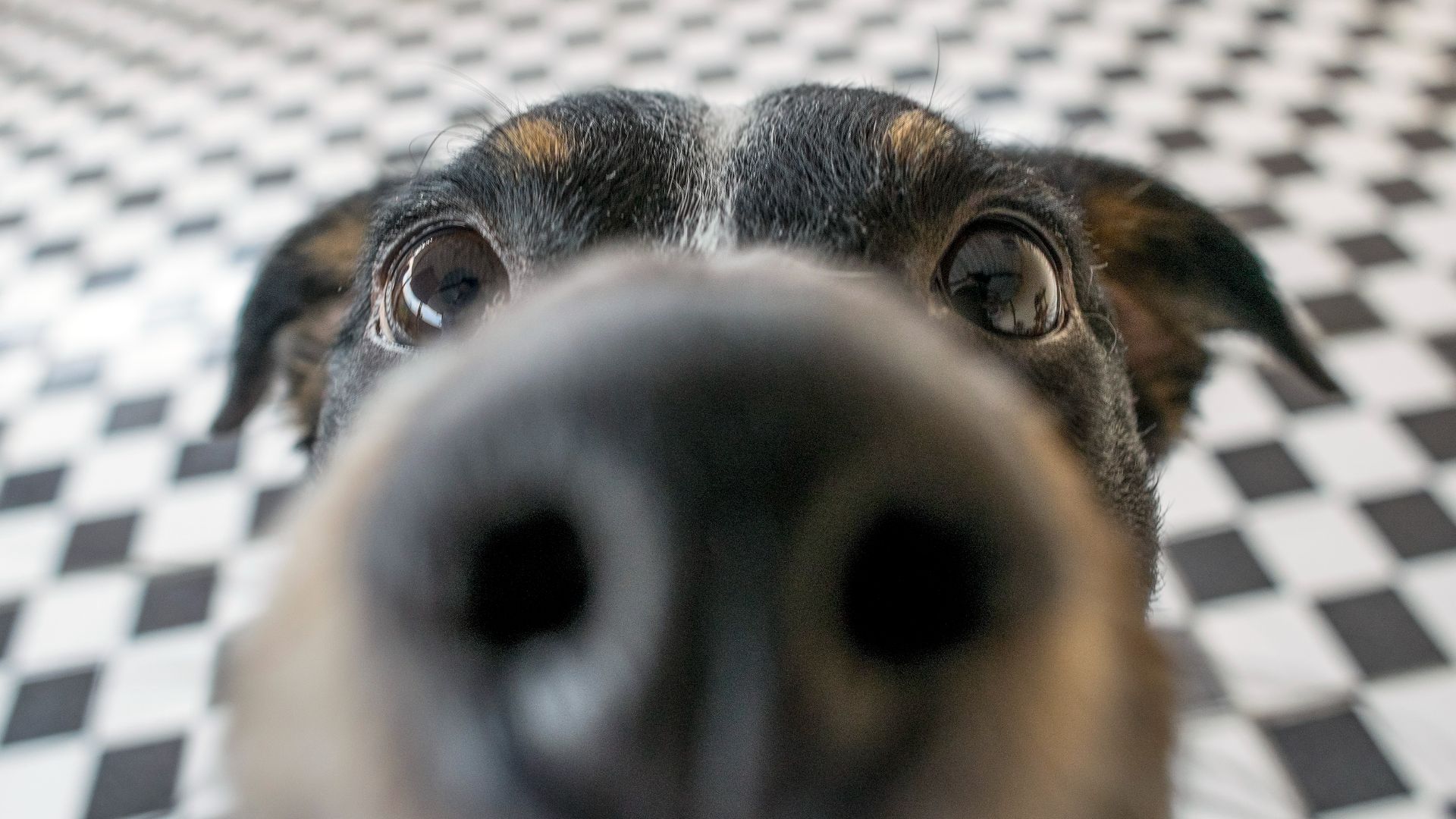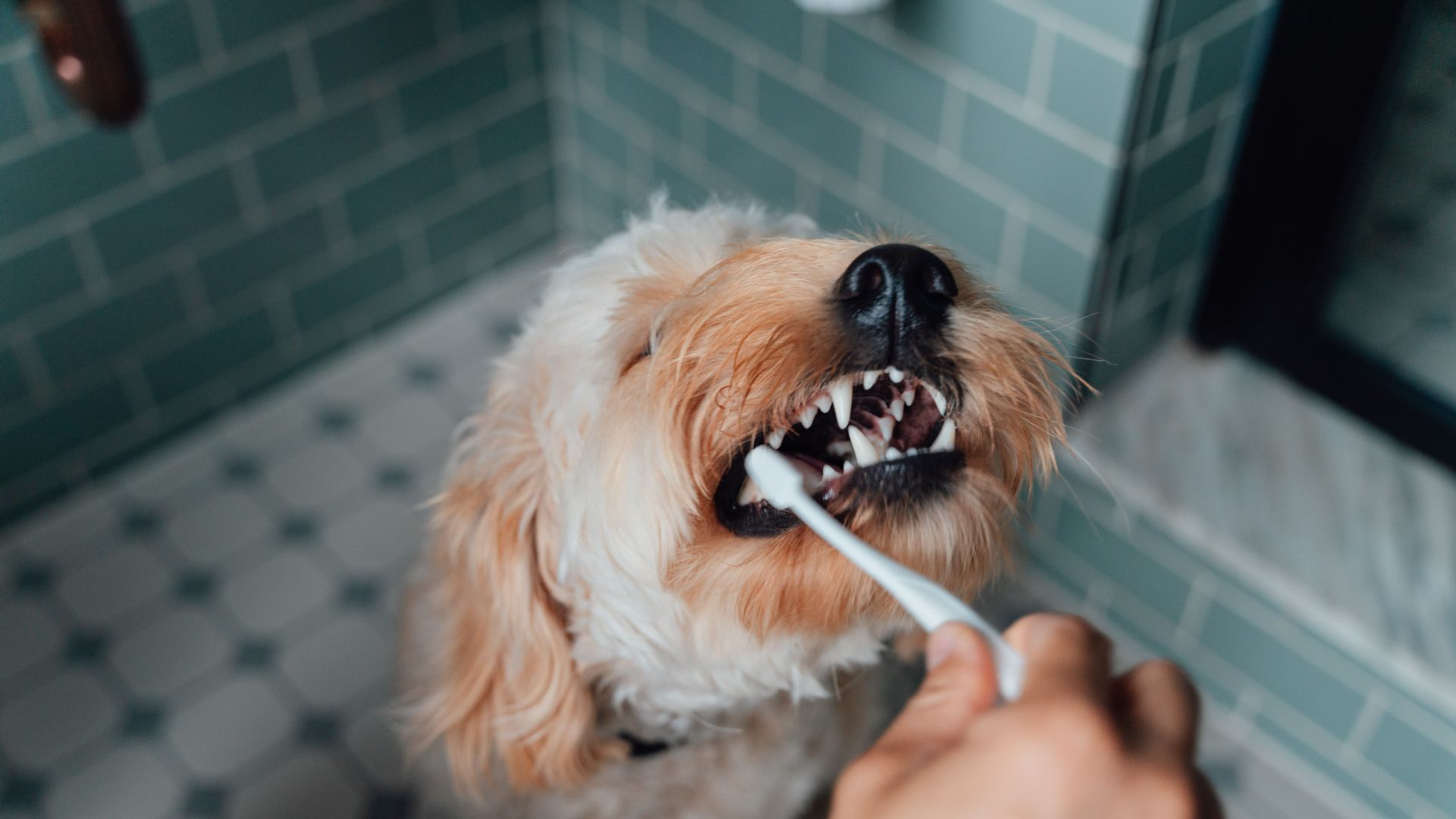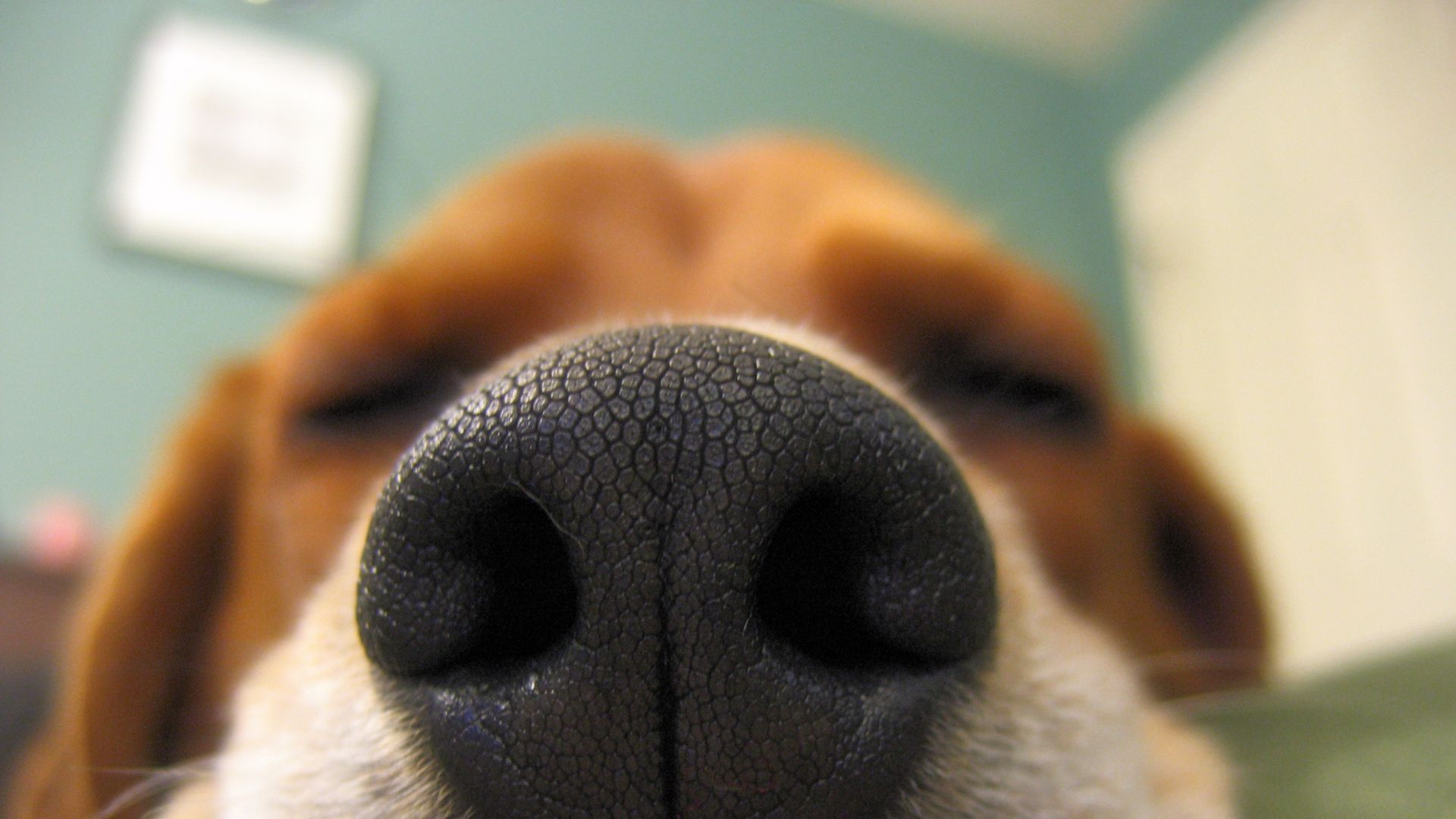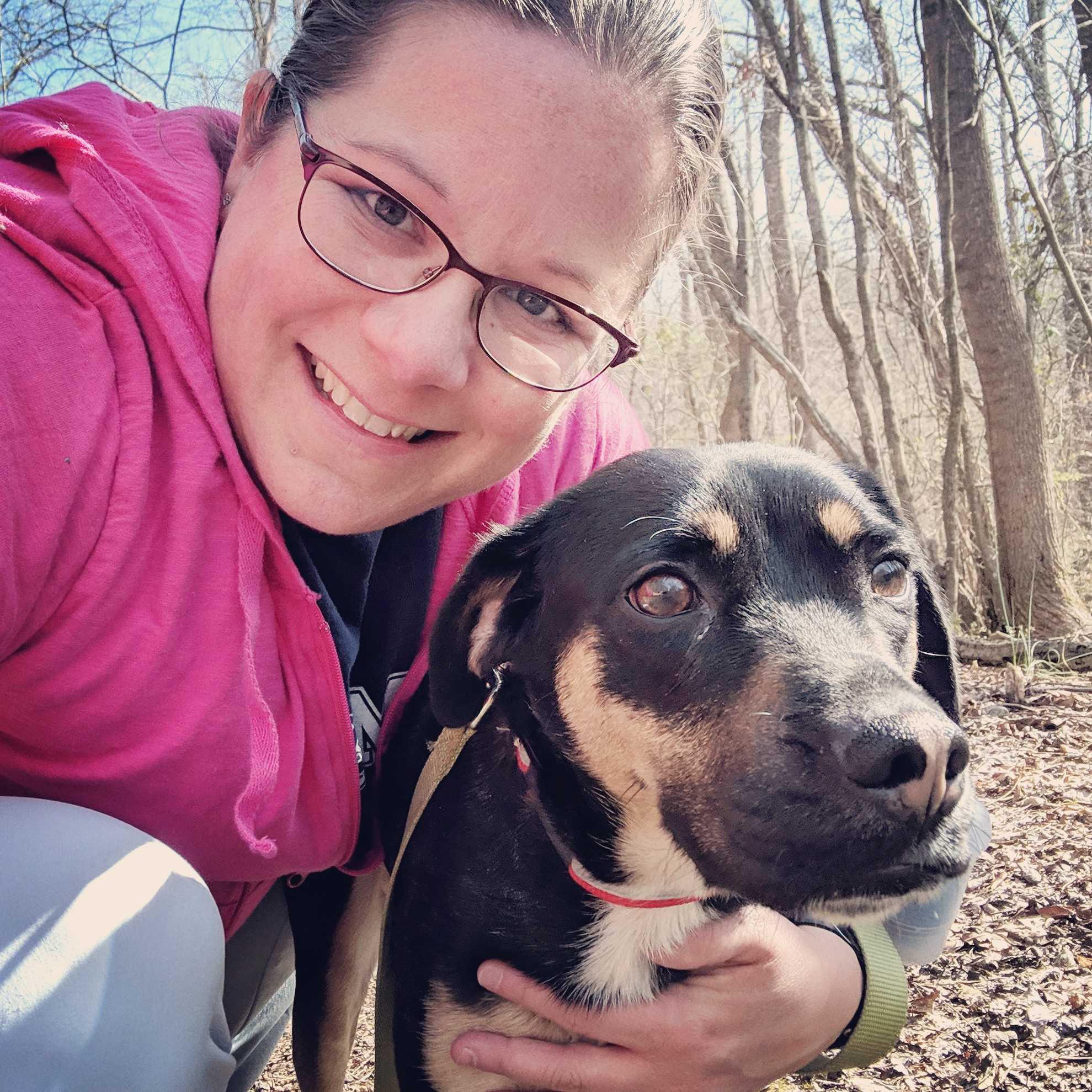Dog sneezing got you worried? Our vet explains 4 reasons why your dog might be sneezing more than normal
If your dog is sneezing more than usual, here’s when you should be concerned

Dog sneezing is usually nothing to be worried about and is just a normal behavior. But if your pooch is sneezing more than usual, you might be concerned and want to figure out why.
Vet, Dr. Catherine Barnette explains four possible reasons why and when you might want to make an appointment with your vet. Like humans, dogs can sneeze for a variety of reasons. Most commonly, dogs sneeze due to allergies. This can be helped by making a switch to one of the best dog foods for allergies. Other common reasons are dental or nasal issues, and, most surprisingly, excitement.
Let’s check these out in more detail and find out what pet parents should be on the lookout for.
Causes of dog sneezing

Allergies
In the case of allergies, your vet will first identify the cause of your dog’s allergies.
There are four common allergies in dogs: grain/dust mite allergy, inhalant allergy, flea allergy, and food allergy. Food trials are typically used to rule out common food allergies in pets, while allergy testing can assess your pet’s response to mites and environmental triggers.
Based on these tests, your vet will characterize your dog’s allergies and recommend an appropriate treatment. Allergies are managed, not cured. Your dog will likely require long-term use of a hypoallergenic diet, oral medications such as apoquel for dogs, and/or other lifestyle changes to control allergies.
This grain-free dry dog is perfect for dogs with allergies and sensitive stomachs. It comes in salmon, chicken, or beef flavors, all of which are paired with sweet potatoes. It has also been formulated by a team of vets and pet nutrition experts.
Dental issues

Canine dental diseases are best addressed with a comprehensive dental cleaning, performed under general anesthesia. Your vet will examine your dog's teeth closely and take radiographs (X-rays) of each tooth.
Get the best advice, tips and top tech for your beloved Pets
Diseased teeth will be extracted, and your dog will likely be treated with antibiotics. In many dogs, addressing dental disease alleviates recurrent sneezing. It is important to do your best to keep your dog’s teeth clean. Read our vet’s guide on how to brush a dogs teeth to stay on top of your dog’s dental hygiene.
3-in-1 Dog Toothbrushing Kit | Amazon
This toothbrushing kit has everything you need to keep your dog's teeth in tip-top shape. It has an electric toothbrush, plaque remover attachment, and water flosser. It also boasts three sensitivity levels to suit any dog's comfort level.

Nasal problems
A nasal foreign body, in contrast, is typically addressed surgically. Your vet will sedate your dog, and then attempt to flush or extract any foreign material from the nose. Removal of a nasal foreign body is curative; no further treatment is usually needed, once the object has been removed from the nose.
Nasal tumors are relatively uncommon, but they do occur. Treatment may require a combination of therapies. Depending on the tumor and its location, your vet may recommend surgery, radiation therapy, and/or chemotherapy.
Excitement
While some sneezing has a medical cause, this isn't always the case. Dogs also use sneezing to communicate with other dogs and their human companions.
Sneezing is often associated with excitement, indicating a desire to play or interact. In fact, many dogs use sneezing to get their owners' attention. Sneezing may be used as a sign of submission in some contexts, or it may be used as a way to de-escalate rough play. Behavioral sneezing usually does not indicate an underlying medical problem.
When should you be worried about dog sneezing?
If you are still feeling concerned about how frequently your dog is sneezing, these are a few things to look out for. If you notice any changes in their appetite, facial swelling, bleeding, or nasal discharge you will want to make an appointment with your vet right away.
If you found this helpful, check out Five signs of dog allergies and 32 of the most common illnesses dogs can get.

Dr. Barnette is a graduate of the University of Florida, where she received both her B.S. in Zoology and her Doctor of Veterinary Medicine (DVM). She has 15 years of clinical experience as a small animal veterinarian, treating dogs, cats, and occasional exotic patients. She now works as a freelance veterinary writer, creating educational content for veterinarians, veterinary team members, and dedicated pet owners.
Dr. Barnette is a graduate of the University of Florida, where she received both her B.S. in Zoology and her Doctor of Veterinary Medicine (DVM). She has 15 years of clinical experience as a small animal veterinarian, treating dogs, cats, and occasional exotic patients. She now works as a freelance veterinary writer, creating educational content for veterinarians, veterinary team members, and dedicated pet owners. Dr. Barnette lives in southwest Florida with her husband and daughter (plus two cats, a dog, and a rescued dove!) and enjoys kayaking, biking, and hiking. Learn more about Dr. Barnette at www.linkedin.com/in/catherinebarnette.
- Alexis De LeaverDigital & Syndication Staff Writer



